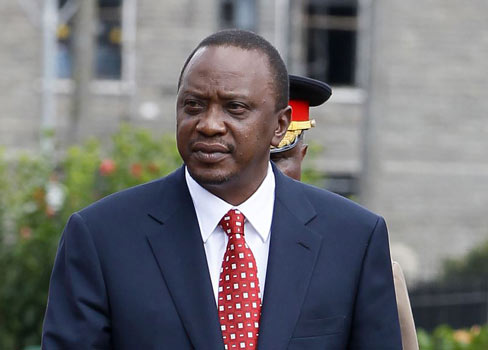
Kenyan authorities arrested the head of a government agency on Monday in a corruption investigation into the theft of nearly $100 million-Ca rare move to hold officials to account for graft in a nation where it is widespread.
President Uhuru Kenyatta had pledged to stamp out graft when he was first elected in 2013, but critics say he has been slow to pursue top officials.
A government SUV brought Richard Ndubai, the Director General of the National Youth Service, and sixteen other unidentified persons who had their heads covered in hoods, to a police station in the Nairobi neighbourhood of Muthaiga at midday on Monday.
George Kinoti, the Director of Criminal Investigations told newsmen that a total of 17 people had been arrested and would be charged tomorrow.
After more than a week of front-page stories in Kenyan newspapers and numerous hashtags on Twitter, the Director of Public Prosecutions, Noordin Mohamed said prosecution of all arrested suspects named in a file by the police’s Criminal Investigations Department would immediately commence.
Mohamed had told reporters last week that his office was investigating pending bills totaling at least 8 billion shillings ($99 million). Kenyan media reported that the funds were stolen through fictitious invoices and multiple payments on one supplier invoice.
The case – first reported earlier this month by a local Kenyan newspaper had touched a nerve, particularly on social media, where many Kenyans mocked the Kenyatta administration for lip service on corruption.
Many Kenyans say they believe that the amount allegedly looted by youth service officials is a fraction of the overall amount of money stolen annually by government officials.
The current scandal follows another three years ago at the same agency. Earlier this year, a court acquitted nearly two dozen officials at the agency after a trial over the alleged theft of 48 million shillings in 2015.
In 2016, the then head of Kenya’s anti-graft agency said the country was losing a third of its state budget – the equivalent of about $6 billion – to corruption every year, a figure which was disputed by the country’s finance ministry.

Biden Administration Imposes New Sanctions On Iran Following Attack On Israel
Israel’s European Allies Urge Restraint Amid Escalating Tensions With Iran
Israel Prepares For Possible Attack From Iran As Tensions Escalate
Senegal’s President Bassirou Appoints Ousmane Sonko As New Prime Minister